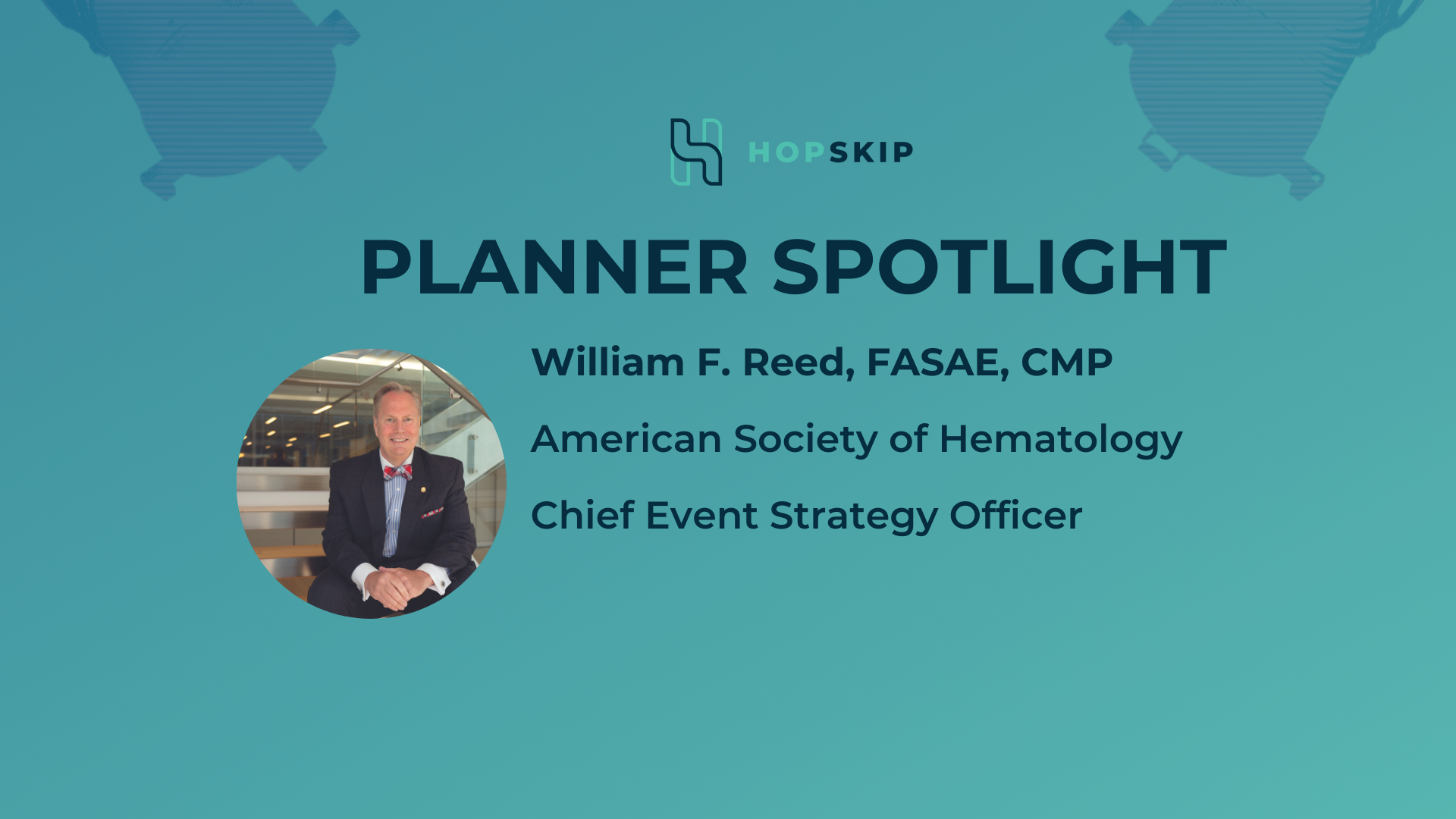This post is part of the HopSkip Planner Spotlight Series where HopSkip spotlight's planners across the industry to bring awareness of how they adapted to COVID-19, communicating and lessons learned and sharing how they are viewing the meetings and events industry in a post-pandemic world.
Name: William F. Reed, FASAE, CMP
Company Name: American Society of Hematology
Job Title: Chief Event Strategy Officer
Years of Experience: 35+
How were you able to adapt during COVID-19 when the meeting and events industry got disrupted?
Early on at the start of the pandemic, I was fortunate to realize that my mindset was going to dictate what the experience would be like. Positive mindset = positive experience, negative mindset leads to negative scenarios. I am so grateful for that revelation at the time and that has proven to be beneficial.
The pandemic has certainly had lamentable aspects, especially the deaths, worker layoffs, isolation, and despair on many levels. However, it has also offered the opportunity to evolve as professionals if we have the courage to embrace the uncertainty and change. It has been invigorating to conjure up skills and beliefs that were present in the early stages of my career, the ability to experiment and figure things out when there was no roadmap to follow. I have been amazed at how a positive mindset applied to experience can lead us to new adventures and discoveries but one has to be open to the core foundational concept of evolution over the status quo first. "Rinse and repeat" has never been a good space for me and this pandemic has presented scenarios that required agility, determination, resilience, and mostly, the love of learning new things. Keeping my eyes focused forward instead of in the rear view mirror has kept me facing in the right direction towards the new reality, not the memories of the past.
Like many aspects of life, the journey starts by looking inside oneself and examining what you have to contribute, to leverage, and where growth opportunities exist. I am so grateful for that perspective and those that encouraged me to discover it at multiple stages of my career. I appreciate anyone who embraces the importance of being a leader at difficult times the most, and the people who made the courageous decision to evolve as a professional rather than retreat.
As a planner, what was the number one thing you learned over the past year?
This has always been true, but it seems to me that it is more important than ever right now. When designing events, a one-size fits all approach will not maximize results for anyone. The successful design needs to empower each participant to be able to make choices on what appeals to their needs and preferences - to craft a personalized journey. Creating value enables your to charge accordingly. To do this on a large scale requires intimate knowledge of your participants themselves, but moreover, how they differ from each other so custom approaches are considered. It is never too late to get started with the development of attendee personas that match your participant profiles and preferences.
The importance of this is magnified when we consider that one event will have multiple audiences of learners, buyers, and engagers as they always have, but now they will take in your content according to their time, place, learning style, and delivery mechanism. Give them choice and you can expand your reach and deliver more value.
Is there anything you are changing in your planning process moving forward as a result of the pandemic?
Timelines need to be more fluid and flexible for many stakeholders, and I think we all have had to learn to be comfortable with the fluidity in this unprecedented era. Only time will tell whether these milestones on our project plan will become more reliable once again once we all grow accustomed to the new realities and norms.
This post is part of the HopSkip Planner Spotlight Series where HopSkip spotlight's planners across the industry to bring awareness of how they adapted to COVID-19, communicating and lessons learned and sharing how they are viewing the meetings and events industry in a post-pandemic world.
